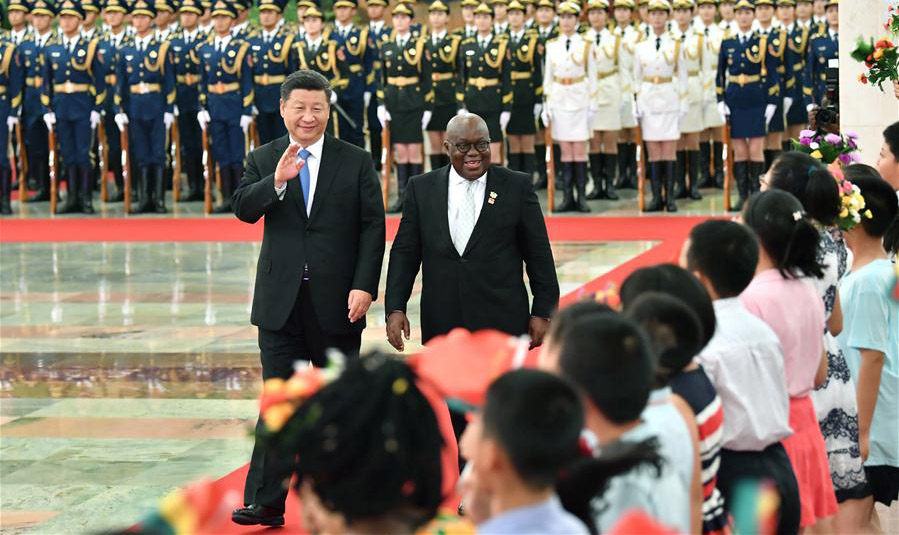SAN FRANCISCO, Sept. 1 (Xinhua) -- More African children were killed from the indirect effect of armed conflicts on the African continent than from actual battles, according to a new study of Stanford University.
Stanford researchers found that about 3.1 million to 3.5 million infants born within 48 kilometers of armed conflict were killed from 1995 to 2015 as a result of indirect consequences of armed conflicts.
In the period of 20 years, the number of infant mortality related to armed conflicts was more than three times the direct deaths from these fighting that took place on the African continent, they said in the study published in the journal The Lancet.
The researchers studied the cause of child mortality from African armed conflict on the basis of the data from the Demographic and Health Surveys conducted in 35 African countries from 1995 to 2015.
They matched data on 15,441 armed-conflict events with data on 1.99 million births and subsequent child survival across 35 African countries. The dataset includes information about the time, location, type and intensity of conflicts from 1946 to 2016.
They discovered evidence of increased mortality risk from as far away as 96 kilometers from armed conflicts and for eight years after them.
Children younger than one year were the riskiest population if they were born in the same year as a nearby armed conflict, said the researchers.
The lingering impact of armed conflicts could raise infant mortality rate by more than 30 percent even after fighting ended for years, they noted.
"The indirect effects of conflict on children are so much greater than the direct deaths from warfare," said Eran Bendavid, author of the study.
"Our data suggest that conflict can itself be a key driver of these outcomes, affecting health services and nutritional outcomes hundreds of kilometers away and for nearly a decade after the conflict event," said Marshall Burke, an assistant professor of the Stanford Department of Earth Systems Science and fellow at the Center on Food Security and the Environment.
The Stanford study indicated that the absence of health care, vaccines, food, water and shelter kills more civilians than bombs and bullets.
The indirect toll of armed conflict among children is three to five times greater than the estimated number of direct casualties in conflict, and the results could be even worse if the impact on women or other vulnerable population was taken into consideration.
The researchers hope their findings could help boost humanitarian aid to African children in conflict zones.













